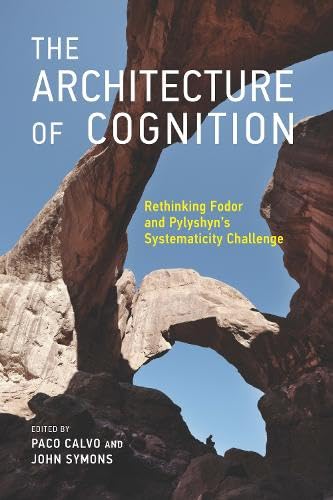All Categories



The Architecture of Cognition: Rethinking Fodor and Pylyshyns Systematicity Challenge
Share Tweet
*Price and Stocks may change without prior notice
*Packaging of actual item may differ from photo shown
- Electrical items MAY be 110 volts.
- 7 Day Return Policy
- All products are genuine and original
- Cash On Delivery/Cash Upon Pickup Available








About The Architecture Of Cognition: Rethinking Fodor And
Philosophers and cognitive scientists reassess systematicity in the post-connectionist era, offering perspectives from ecological psychology, embodied and distributed cognition, enactivism, and other methodologies. In 1988, Jerry Fodor and Zenon Pylyshyn challenged connectionist theorists to explain the systematicity of cognition. In a highly influential critical analysis of connectionism, they argued that connectionist explanations, at best, can only inform us about details of the neural substrate; explanations at the cognitive level must be classical insofar as adult human cognition is essentially systematic. More than twenty-five years later, however, conflicting explanations of cognition do not divide along classicist-connectionist lines, but oppose cognitivism (both classicist and connectionist) with a range of other methodologies, including distributed and embodied cognition, ecological psychology, enactivism, adaptive behavior, and biologically based neural network theory. This volume reassesses Fodor and Pylyshyn's systematicity challenge for a post-connectionist era. The contributors consider such questions as how post-connectionist approaches meet Fodor and Pylyshyn's conceptual challenges; whether there is empirical evidence for or against the systematicity of thought; and how the systematicity of human thought relates to behavior. The chapters offer a representative sample and an overview of the most important recent developments in the systematicity debate. Contributors Ken Aizawa, William Bechtel, Gideon Borensztajn, Paco Calvo, Anthony Chemero, Jonathan D. Cohen, Alicia Coram, Jeffrey L. Elman, Stefan L. Frank, Antoni Gomila, Seth A. Herd, Trent Kriete, Christian J. Lebiere, Lorena Lobo, Edouard Machery, Gary Marcus, Emma Martín, Fernando Martínez-Manrique, Brian P. McLaughlin, Randall C. O'Reilly, Alex A. Petrov, Steven Phillips, William Ramsey, Michael Silberstein, John Symons, David Travieso, William H. Wilson, Willem Zuidema



























